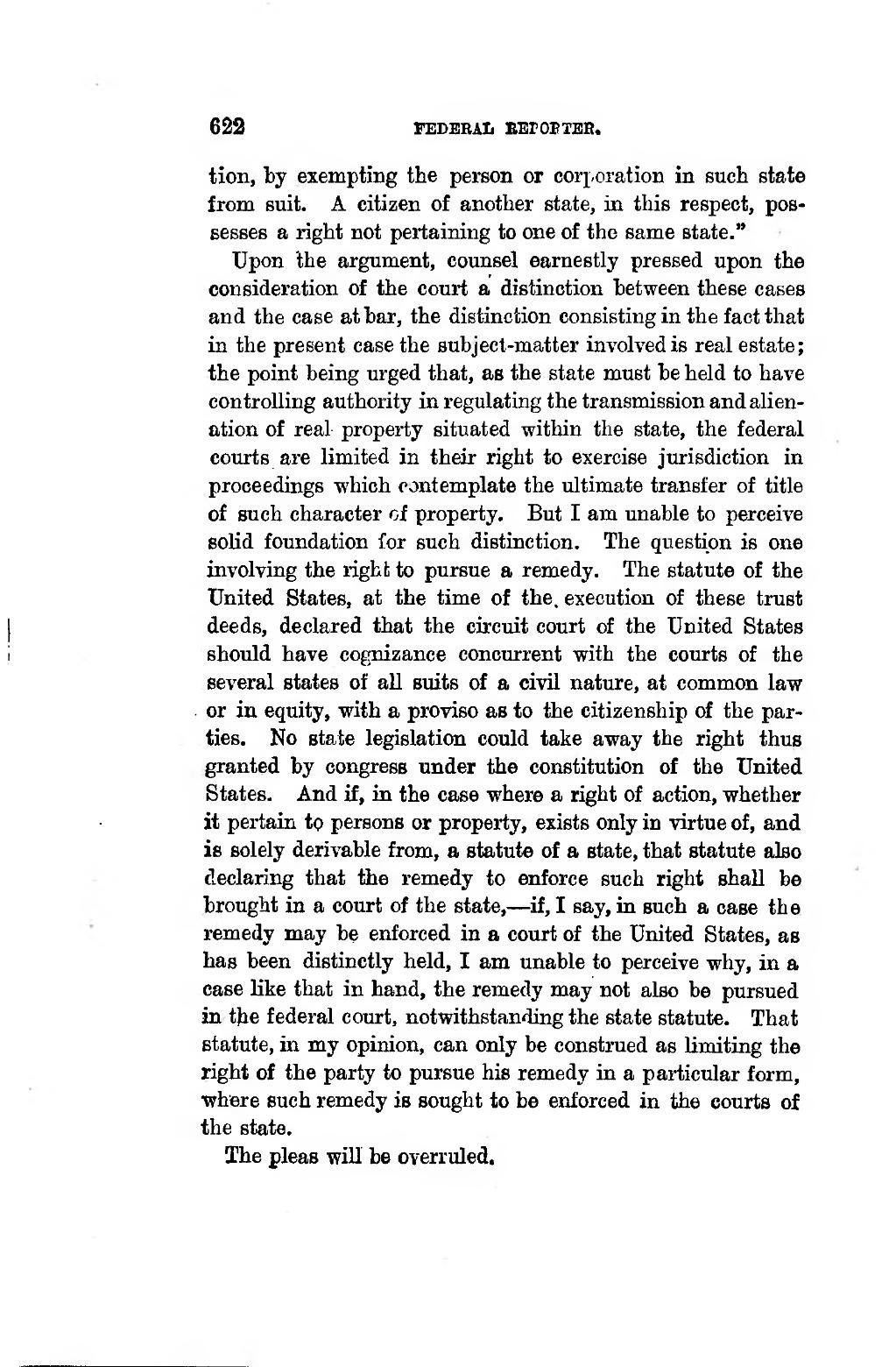623 FEDERAL EBrOBTER. �tion, by exempting the person or corporation in such state from suit. A citizen of another state, in this respect, pos- sesses a right not pertaining to one of the same state." �Upon the argument, counsel earnestly pressed upon the consideration of the court a distinction between these cases and the case at bar, the distinction consisting in the fact that in the present case the subject-matter involvedis real estate; the point being urged that, as the state must be held to have controlling authority in regulating the transmission and alien- ation of real property situated within the state, the federal courts are limited in their right to exercise jurisdiction in proceedings which contemplate the ultimate transfer of title of such character of property. But I am unable to perceive solid foundation for such distinction. The question is one involving the righfc to pursue a remedy. The statute of the United States, at the time of the. execution of these trust deeds, declared that the circuit court of the United States should have cognizance concurrent with the courts of the several states of ail suits of a civil nature, at common law or in equity, with a proviso as to the citizenship of the par- ties. No state legislation could take away the right thua granted by congress under the constitution of the United States. And if, in the case where a right of action, whether it pertain to persons or property, exists only in virtue of , and is solely derivable from, a statute of a state, that statute also declaring that the remedy to enforce such right shall be brought in a court of the state, — if, I say, in such a case the remedy may be enforced in a court of the United States, as bas been distinctly held, I am unable to perceive why, in a case like that in hand, the remedy may not also be pursued in the federal court, notwithstanding the state statute. That statute, in my opinion, can only be construed as limiting the right of the party to pursue his remedy in a particular form, ■where such remedy is sought to be enforced in the courts of the state. �The pleas will be overruled. ����
